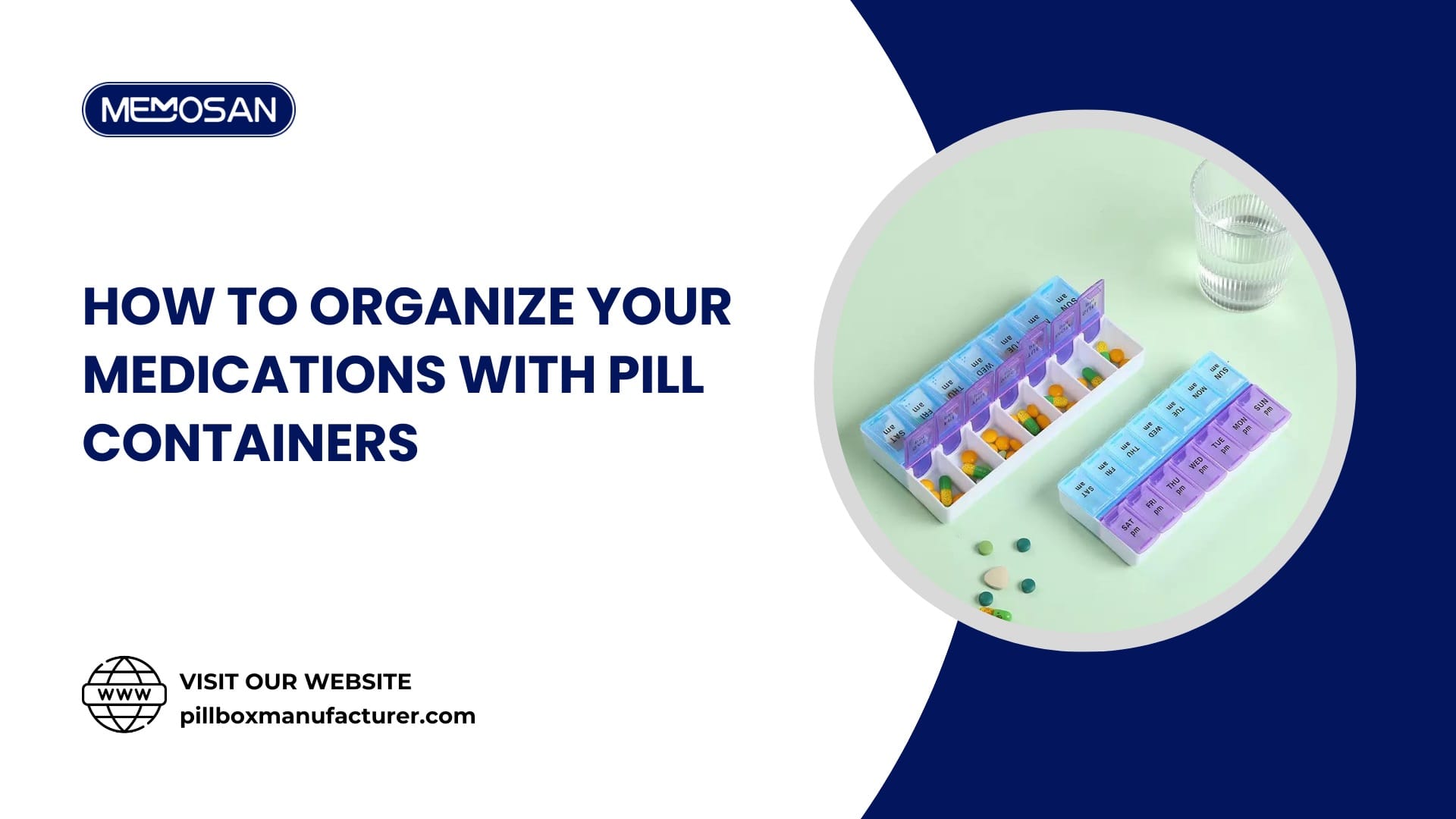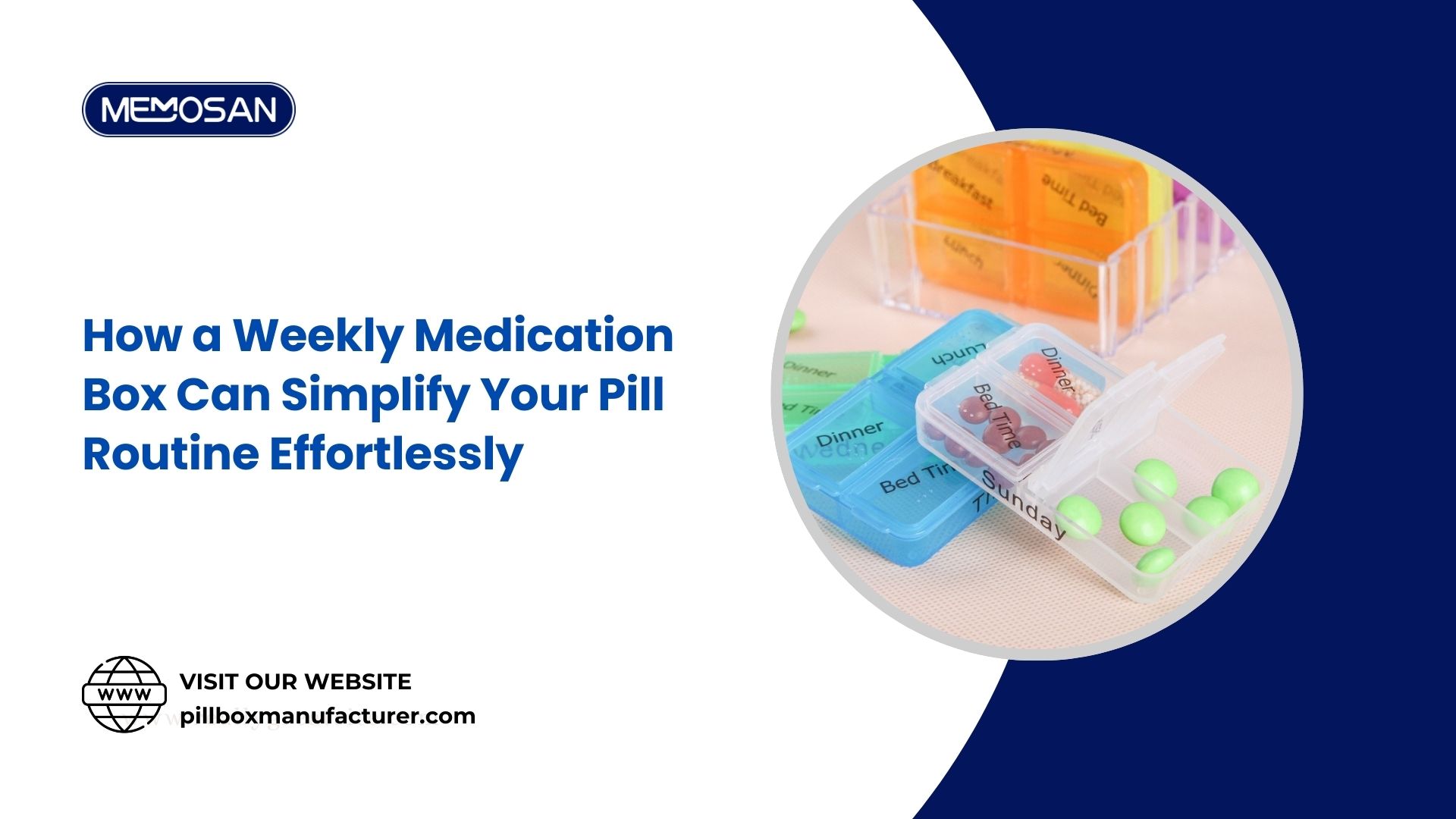Pill container can help you simplify your routine, improve medicine adherence, and lower mistake rates. Sort your prescriptions according to the dosage and time after you’ve gathered them all. Daily, weekly, or monthly pill containers are appropriate; mark each compartment. Ensure the dosages are exact before adding the proper medications to the compartments. The container should be kept in a visible, secure location. Ensure you routinely discuss your prescription schedule with your doctor and set reminders for when to take them. Following these guidelines may ensure a more efficient and well-organized approach to managing medications for improved health outcomes.
Introduction
Proper medication management is essential to sustaining health for people with many prescriptions or ongoing medical conditions. Taking medicines on time and correctly is ensured by good medication management, which lowers the chance of problems and enhances general health. However, it might be challenging to remember to take different prescriptions. This is where medication containers are a handy tool. Offering an organized way to keep and access pill containers is designed to make the administration and organization of prescriptions easier. They are available in various forms to meet different demands, including daily, weekly, and monthly organizers. Pill boxes with transparent sections and labeling reduce the possibility of taking the wrong medication and assist in avoiding missing doses.
This blog will discuss the advantages of pill containers and offer a comprehensive how-to guide to help you efficiently arrange medication to maintain better health and peace of mind.
Benefits of Using Pill Containers
A pill container enhances your medication management. Here are a few of the principal benefits:
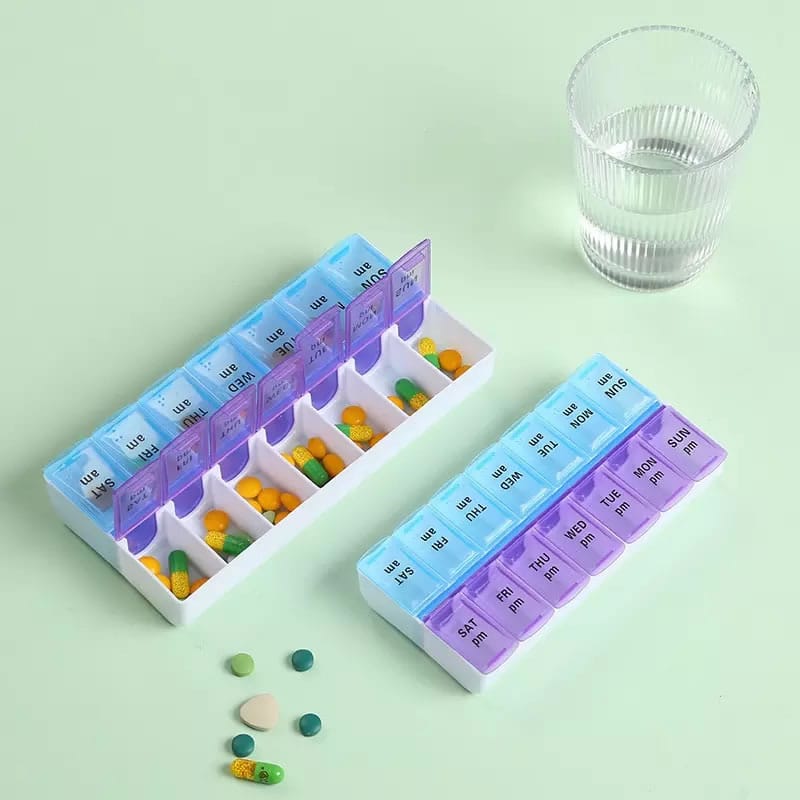
Improve Participation with Medication Routines
- Pill containers provide a clear, structured manner to take your pills, which helps you stay on track with the schedule.
- It’s simpler to remember when to take each medication when there are compartments for each day and time.
- Many pill containers have visual indicators built right into them, making it easier to remember to take your medications on time.
Streamlined Medication Management Process
- Keeping prescriptions organized in a pill container eliminates the daily need to handle several bottles.
- It reduces confusion and saves time by streamlining the medication-taking process.
- You can prepare your prescriptions ahead of time with weekly or monthly pill containers, so you’re always prepared.
Reduced Risk of Errors and Missed Doses
- Pre-sorting medicines into compartments reduces the possibility of taking the wrong drug at the wrong dosage.
- Pill containers make it easy to tell whether you’ve taken your medication for the day, helping reduce missed doses.
- A further way to lower the chance of forgetting a dose is to have built-in alarms or reminder functions on some pill containers.
Using pill containers can help you manage your meds more effectively and consistently, improving your health and providing more peace of mind.
Different Types of Pill Container
Daily Pill Containers
Features
- With distinct sections for each day, it is made for everyday use.
- They are perfect for people on a short-term medication plan as they are simple to use.
- It is portable and easy to fit in a pocket or handbag.
Ideal For
- Travel and short-term prescription schedules.
Weekly Pill Containers
Features
- It is structured with seven compartments, one for every day of the week.
- They frequently contain many compartments daily (morning, lunchtime, and nighttime, for example) to accommodate varying dosages.
- It helps to maintain a regular medication schedule.
Ideal For
- Individuals who take medications regularly.
Monthly Pill Containers
Features
- Designed for long-term medication planning with compartments for each day of the month.
- Reduces the need for frequent refilling, providing convenience and consistency.
- It often includes features like removable daily compartments.
Ideal For
- Long-term medication planning and individuals on multiple medications.
Specialized Pill Containers
Features
- Alarms and reminders to alert users when it’s time to take their medication.
- Lockable compartments for added security are handy for medications requiring careful handling.
- Larger compartments for those who take larger pills or multiple pills at once.
Ideal For
- Seniors who may need additional reminders and security.
- People with chronic conditions require strict medication schedules.
- Individuals with memory issues or those needing a higher level of organization.
By choosing the best pill container, you can efficiently manage your prescription, ensure you never miss a dosage, and have better control over your health.
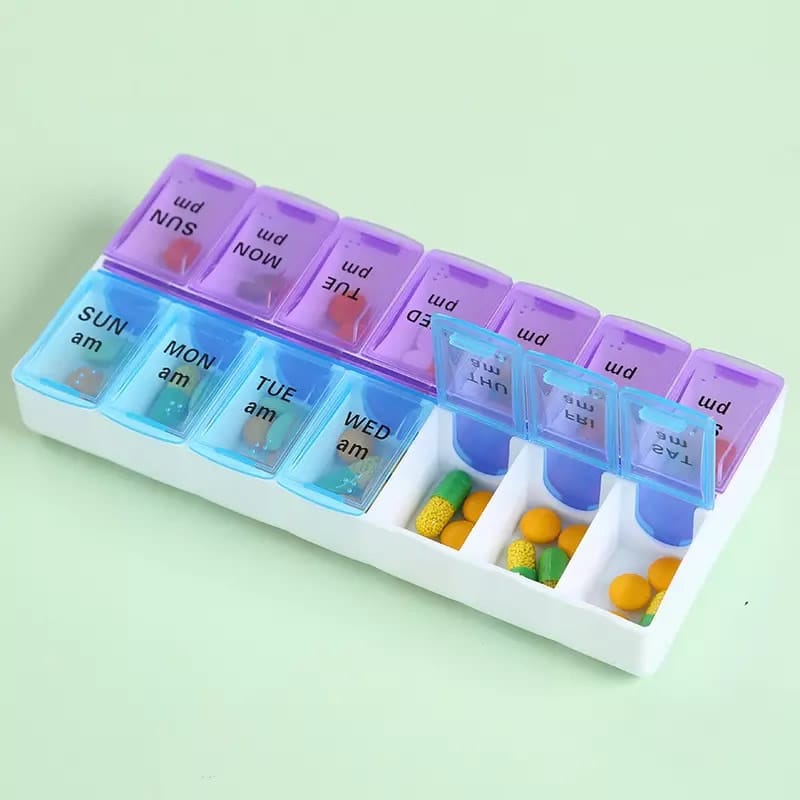
How to Choose the Right Pill Container
Choosing a suitable pill container is crucial for effective medication management. Here are some key points to consider
Measure the Quantity and Doses of Medications
Single-compartment containers: Ideal for people taking one or two prescription drugs.
Multi-compartment Containers: Essential for people who take different prescriptions throughout the day.
Search for Extra Features
Portability: Small and lightweight designs are perfect for people constantly on the go.
Labeling Options: To prevent confusion, use clear labels or color-coded divisions.
Alarms and Reminders: These benefit older people or those suffering from memory problems.
Suggestions for Various User Needs
Seniors: Select pill containers with big compartments, easily accessible lids, and legible labeling.
Travelers: Choose spill-proof, lightweight, and safe containers that are easy to carry.
Chronic Conditions: Organizing complicated prescription regimens is easier with containers with many compartments and reminder functions.
Consider these variables before choosing the pill container that best meets your needs. This will help you stick to your prescription regimen and manage your health more effectively.
Step-by-Step Guide to Organizing Medications
Organize Medications by Frequency
Daily Medications: List the prescriptions that must be taken on a daily basis.
Weekly Medications: List all of the medications that you use on a weekly basis.
As-needed Medication: Separate prescriptions that are only taken when required.
Organized based on the Time of Day
Morning: Prescription drugs that must be taken in bulk in the morning.
Afternoon: The afternoon is set aside for group medication.
Evening: Decide which drugs to take.
Bedtime: Separate medications that should be taken at bedtime.
Choose and Label the Pill Container
Select a Container: Choose a pill container based on how often you take your medications (weekly, monthly, or daily).
Labels Compartments: Clearly label each compartment with the appropriate day of the week and time of day.
Fill the Pill Container
Place Medications: Place the correct medications into the respective compartments with care.
Double-Check: Ensure that the correct drug and dosage are contained in each compartment.
Store the Pill Container
Keep the Pill Container in a Cool, Dry location: Keep the pill container out of direct sunlight and in an excellent, dry location.
Simple Access: Make sure the container is simple to go to regularly.
This systematic method promotes improved health and well-being by reducing the likelihood of missed doses and drug mistakes.
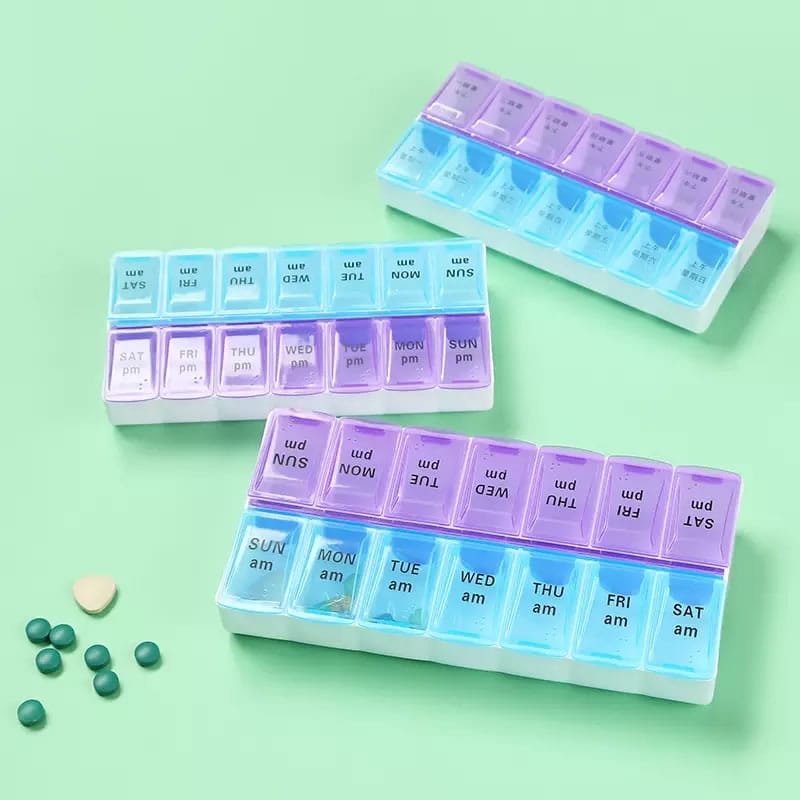
Tips for Maintaining Your Medication Organization
It is essential to maintain medication organization for efficient administration and the best possible health results. The following helpful advice can assist you in keeping your medicine organized:
Set Alarms or Daily Reminders
- Set alarms on your phone or with a specialized medication reminder app for each dose.
- Reminders at regular intervals ensure that you always remember a dose, especially if your schedule is hectic.
Maintain a Medication Log or Diary
- Keep a written or electronic log of the medications you consume.
- Add information on the dosage, when it should be used, and any reactions or side effects.
- A journal gives your healthcare practitioner important information and aids in keeping track of your adherence.
Refill the Pill Container at the Same Time for Each Week/Month
- Set aside a particular day and time to refill your medication container every week or month.
- Refilling prescriptions consistently helps to keep up a continuous treatment regimen and avoids running out of drugs.
Review your medications regularly with your healthcare provider
- Plan routine check-ups with your physician so that you can discuss your prescription regimen.
- Talk about any new symptoms, health changes, or possible adverse effects.
- Frequent evaluations guarantee the continued safety and efficacy of your drug regimen.
By implementing these suggestions, you may improve overall health management, minimize the chance of medication errors or missing doses, and maintain a well-organized drug regimen.
Additional Tools and Resources to Prevent Medication Error
Numerous tools and resources are available to help you improve the organization of your medication. With alarms and tracking capabilities, medication reminder mobile apps can assist you in adhering to your routine. Helpful websites offer guidance on managing medications and connecting with support groups to exchange stories and seek advice. Furthermore, having the phone numbers of nearby pharmacies and medical professionals on hand guarantees that you can respond promptly to any medication queries or problems. All of these tools work together to create a medication management system that is more supportive and successful, assisting you in keeping your dosage accurate and consistent. Using these resources, you can improve your mental and physical well-being.
Final Thoughts
Keeping your medication habits efficient and reliable requires organizing your pills in pill containers. Using pill containers will help you follow your prescribed treatment plan by lowering the chances of medication errors and missing doses. Better medication management can improve your general health and well-being with the help of this straightforward yet effective technique. We urge you to implement these habits because they can increase independence, peace of mind, and more predictable health outcomes. Putting in a small amount of time to arrange your prescriptions can pay significant rewards through simpler adherence to your medical requirements. Take charge of your medication schedule now to ensure better health tomorrow.
FAQs: Pill Container
Are pill containers good?
Yes, pill containers are highly beneficial. They enhance medication adherence, reduce the risk of missed doses, and simplify managing multiple medications. Pill containers help organize your medications by day and time, making it easier to follow your prescribed schedule.
What is pill container made of?
Pill container is typically made of durable, lightweight, and easy-to-clean plastic. Some containers may also feature BPA-free plastic to ensure safety; others might include silicone components for added flexibility and durability.
How to clean a pill container?
To clean a pill container, empty all compartments and wash it with warm, soapy water. Use a soft brush to scrub any residue. Rinse thoroughly and allow it to air dry completely before refilling. For a deeper clean, you can also use a mild disinfectant solution.
How to fill a pill container?
Start by sorting your medications by dosage and timing (morning, afternoon, evening, bedtime). Place the correct amount of each medication into the corresponding compartments of your pill container. Double-check to ensure accuracy and consistency with your prescribed schedule. Refill the container simultaneously each week or month to maintain organization.

